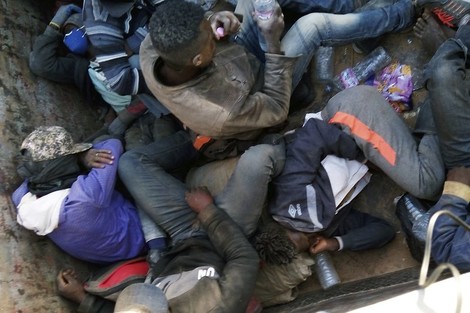Your podcast discovery platform
Curious minds select the most fascinating podcasts from around the world. Discover hand-piqd audio recommendations on your favorite topics.

piqer for: Globalization and politics Global finds
I am an Australian freelance journalist focussing on conflicts, politics, and warzones around the world. I have been working as a journalist for over 5 years, having reported from Australia, Germany, China, Egypt, Palestine, and Ukraine. I am especially interested in the way that new technologies are being used in conflict zones in unexpected and often disturbing ways. During my time working as a journalist, I also co-founded open-source war reporting site Conflict News.
Walk Or Die: Algeria Strands 13,000 Migrants In The Sahara
The latest policy idea for the European Union in dealing with migrants seems to be its most heartless yet—turning boats around and forcing them back to ports in North Africa. This, it is said, is the only way to stop them risking their lives in an ocean crossing. And, importantly, once they are back on African soil, our duty of care ends.
But then what? If these migrants and refugees wish to return to their home countries, an even more deadly journey awaits. Thousands of kilometers of desert span between the Mediterranean coast and the home countries of many. A journey through the Sahara is one where threats are everywhere, from the brutal violence of police and people smugglers to the heat itself which kills those who are unable to find (or afford) enough water.
It is estimated that for every migrant drowned in the Mediterranean, two more have perished in the Sahara. As many as 30,000 people may be lost to the sand.
In her report for Associated Press, Lori Hinnant chronicles some of the most horrifying atrocities of this desert journey. As European states pressure local countries to stop migrants, their police are forcing migrants to turn around, often on poorly provisioned death marches through the Sahara, where falling behind means certain death. Through the haunting stories of those who survived, we are forced to confront the reality that migrants, from the moment they leave their home countries, become simply a nuisance, a statistic, a threat and a death toll.
And when few care if they live or die, can we really expect our governments to deliver a humane solution?
